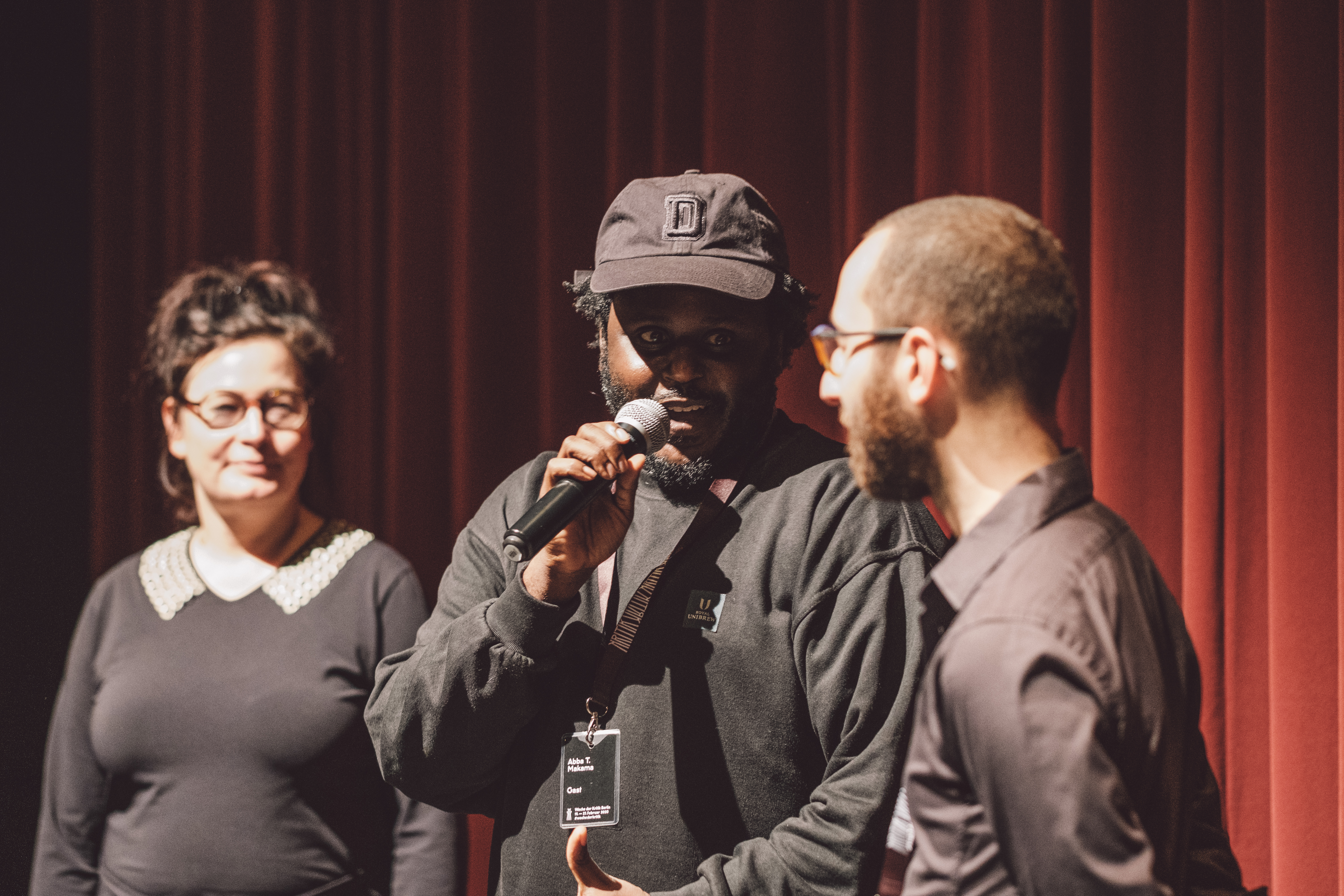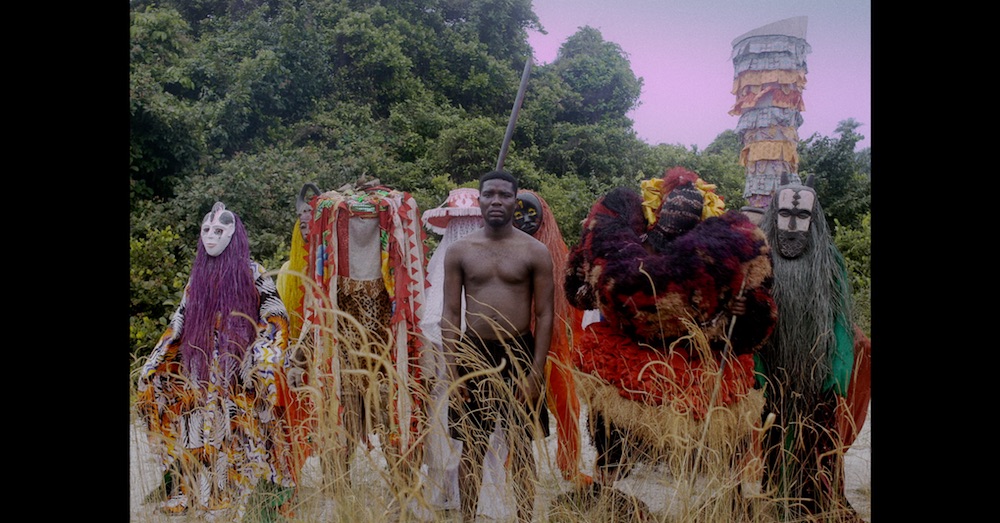Blog #4/20 – Of Cities and Memories
By Narjes Torchani
During the Berlinale, with its jungle of films and events, one can also take a chance with the Berlin Critics’ Week, which takes place in parallel at the Hackesche Höfe Kino. The screening planned for February 23rd was worth the detour. Brazilian short documentary Seven Years in May by director Affonso Uchôa and Nigerian feature The Lost Okoroshi directed by Abba T. Makama were followed by a critics’ debate moderated by Dana Linssen with guests Senem Aytaç and Wilfred Okiche.
A several minutes long static shot is what remains the most in the viewer’s mind after the visual experience of Seven Years in May. Young Rafael tells the story of his arrest and torture by the police, based on false accusations—an incident that turned his life upside down and led him to perdition in São Paulo. When telling this story, Rafael’s voice-tone doesn’t change, his eyes never turn to the camera. His focus is elsewhere, in the now non-existent place where he left his early days. An unreachable place, hidden behind the mountain of wounds and scars left by the traumatic experience he lived. But Rafael is not hiding from that memory. When telling it, he is reciting. Words flow from his mouth, sharp and vivid. He trained himself not to forget and the director’s camera beautifully catches his courage and dignity in the face of injustice. Through Rafael’s personal story, Affonso Uchôa gives a voice to the muted collective consciousness whose sound was diluted in the cruel city’s arteries.
More colorful and comedy-driven, The Lost Okoroshi nevertheless explores just as much sadness. The urban thematic is announced from the start when security guard Raymond keeps telling the people around him (his wife, his colleague, and his friend) that city life in Lagos is not made for him—that it is alienating. His alienation is reinforced by a haunting dream where he is chased by an ancestral Okoroshi masquerade. His friend, an older man who cherishes their ancestral culture and practices, advises him to stop fearing what he sees and to embrace it. When Raymond follows his advice, dream and reality merge, and his body becomes the carrier of the ancestor’s soul: a silent witness from the past who wanders the streets of Lagos as a reminder of a heritage left behind, bringing it back with an enchanting dance that revives the body’s memory. When Raymond and Okoroshi meet in the same body, they become a hybrid creature—an urban avenger filled with one’s dissatisfaction and the other’s ancient powers.

The way Abba T. Makama transposes the past to the present is one of most interesting aspects of his film. Color composition is one of his many tools to do so. In different moments of the film, we see Okoroshi in his purple, ancestral outfit dancing in front of skyscrapers and balconies of the same color, as a symbol of how the soul of the past was replaced by concrete. Throughout the film, the writing style smartly serves a strong message through comedy. Every laugh has a bitter aftertaste. Situations and dialogues demonstrate how profound the cultural crisis is. This particularly applies to the psychiatrist character in the film who uses western methods to analyze and study the Okoroshi’s resurrection.
During the debate that followed the screening of both films, the presence of Nigerian film critic Wilfred Okiche enriched the discussion, since he started by situating the film with regard to “Nollywood”. “This film is not really the mainstream Nollywood film. It belongs to a new wave”, he described. What both films have in common was a starting point set by moderator Dana Linssen. For Okiche, the two films join in the idea of the ghostly presence of the past and in the fact that both main characters, Rafael and Raymond, leave their homes and families because of what they endured. The critics’ answers led to another important matter inherent to the practice of film criticism. In perceiving a film, should we start from ourselves and interpret the film through our experiences or the other way around? And does a film critic always need to have the relevant historical background to be able to seize the most important aspects of a film? Aytaç and Okiche were both on the side of subjectivity in interpreting what the film has to say to everyone. Even if they diverge in their style, both films explore through their characters how to deal with what remains, from a personal memory or a collective heritage.


